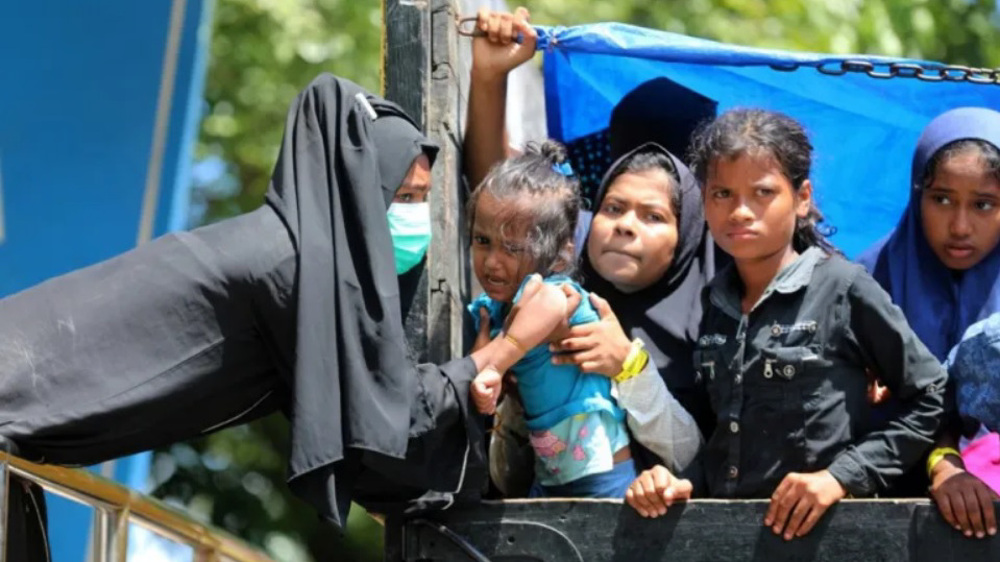Myanmar may need to be referred to ICC: British foreign minister
Britain's Foreign Secretary Jeremy Hunt says the international community should consider referring the treatment of Rohingya Muslims in Myanmar to the International Criminal Court unless those responsible are tried and held accountable in the country.
"If there is not going to be accountability and justice in Burma, then the international community needs to look at all options including ICC referral," Hunt said on Twitter, posting during a visit to Myanmar.
"The latter would need the support of the security council which it may not get so we need to look at other options too."
The referral would need nine votes in favor and no vetoes from the permanent members Russia, China, the United States, Britain and France.
The International Criminal Court has already opened a preliminary probe into Myanmar military's crimes, including killings, sexual violence and forced deportations, against members of the Rohingya Muslim minority group in the Southeast Asian nation.
Separately, Hunt said in an interview that he pressed the country’s de facto leader Aung San Suu Kyi during a meeting in the capital, Naypyitaw, on the importance of holding the armed forces accountable for any atrocities.
"If there isn't accountability and justice, this will be as big a stain on Burma's history as the Khmer Rouge are for Cambodia,” the foreign secretary said.
"We need to be absolutely clear that there can be no hiding place for anyone responsible for these kinds of atrocities," he added.
Hunt said he had witnessed a "climate of fear" during a visit to Rakhine where refugees needed to see "accountability and justice" for atrocities to feel confident enough to return.
Under pressure by the international community, Myanmar says it is willing to take back all Rohingya Muslim refugees who have fled to Bangladesh if they volunteer to return. Refugees say they risk possible death at the hands of the Myanmar military.
UN-mandated investigators have recently said Myanmar's military carried out mass killings and gang rapes of Rohingya with "genocidal intent" in an operation in Rakhine state. The investigators have called for commander-in-chief Min Aung Hlaing and five generals to be prosecuted for genocide and crimes against humanity.

Thousands of Rohingya Muslims were killed, injured, arbitrarily arrested, or raped by Myanmar soldiers and Buddhist mobs mainly between November 2016 and August 2017, when many of the surviving members of the community started fleeing to Bangladesh en masse. The violence drove more than 700,000 refugees across the border to Bangladesh.
The plight of the Rohingya Muslims, long suffering in Buddhist-majority Myanmar, has attracted Western attention only recently.
The Rohingya — who have lived in Myanmar for generations — are denied citizenship and are branded illegal immigrants from Bangladesh, which likewise denies them citizenship but which has granted them refuge on humanitarian grounds.
Araghchi appreciates Pakistan’s vote against anti-Iran UNHRC resolution
Discover Iran: Historical, natural, and economic tapestry of idyllic Hormozgan islands
ICE detains 2-year-old girl, sends her to Texas despite court order
VIDEO | Trump claims his 'Board of Peace' might replace the UN
VIDEO | Shadows of Rebellion: How Iran’s protests turned violent
FBI agent investigating Minneapolis deadly shooting resigns
Belgium imposes arms embargo on Israel amid Gaza genocide
Over 140 riot ringleaders captured in Iran’s Hamedan










 This makes it easy to access the Press TV website
This makes it easy to access the Press TV website